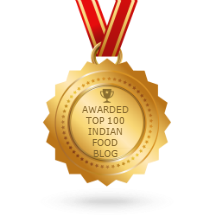Featured on Foodbuzz Top9
May’s Daring Bakers’
Challenge was pretty twisted – Ruth from The Crafts of Mommyhood challenged us
to make challah! Using recipes from all
over, and tips from “A Taste of Challah,” by Tamar Ansh, she encouraged us to
bake beautifully braided breads.
Our host Ruth grew up in a traditional Jewish household where this
beautiful bread graced the table every week. She gave us lots of information
and background relating to traditions of Challah. Believe it or not, the word
“challah” does not actually mean bread.
Any whole loaves can be used at the Sabbath or holiday table for the
traditional blessing. Challah, instead,
is the word referring to the portion of bread which, in the days of the Jewish
temple in Jerusalem, was set aside and given to the high priests.
A brief historical
introduction:
Challah is a bread of
celebration in Jewish tradition. At a
time when white flour was considered a luxury, its use was reserved for either
the wealthy or for festive events. In
Judaism, the Sabbath is a weekly holiday, and therefore is a festive
occasion. It was around the 15thcentury
when Jews in parts of Austria and Germany adopted an oval braided loaf from
their neighbors to make the Sabbath special.
These fancy shaped loaves made with white flour were seen as a fitting
way to honor the Shabbat (Sabbath), symbolized in Jewish culture as a queen,
therefore deserving of the finest one can achieve. In honoring the Sabbath as a day of rest, two
loaves are traditionally put on the table.
This is generally seen as a representation of the double portion of
manna provided to the Children of Israel on Fridays during their wandering in
the desert after fleeing from Egypt.
This double portion allowed them to maintain the commandment to not do
“work” on the Sabbath.
Another symbolic
comparison to the manna eaten by the Israelites is the fact that challah is traditionally
covered with a cloth prior to being blessed and eaten. According to tradition, manna was encased in
dew to preserve its freshness. Covering the challah with a decorative cloth
serves as another reminder of the special quality of the day of rest. There are other explanations given regarding
why the challah is covered. The one
which I always liked was that we cover the loaves so they will not be “embarrassed”
by having to wait while the wine is blessed first. (A traditional Sabbath dinner begins with a
blessing over the wine first, followed by the blessing of the bread, after which
the meal is enjoyed.
Ruth gave us three different recipes. The only
thing that was mandatory was that the bread should be braided or shaped. I made the Honey White Challah she suggested. I halved the
recipe and made a 6 strand braid challah. I really enjoyed baking this
beautiful six strand braid and thank you Ruth for this lovely challenge and
also for providing lots of interesting information about Challah!
(Source: Tammy’s Recipes)
Servings: 2 loaves
Ingredients:
1 ½ cups (360 ml) warm
water, separated
1 Tbsp. (15 ml) (15 gm/½
oz sugar
2 Tbsp. (2-2/3 packets)
(30 ml) (18 gm) (2/3 oz) dry active yeast
½ cup (120 ml) honey
1 Tbsp. (15 ml) oil (light
colored vegetable oil, or olive oil if you prefer)
4 large eggs
1 ½ tsp. 7½ ml) (9 gm)
(1/3 oz) salt
5 cups (1200 ml) (700
gm/25 oz) all-purpose (plain) flour, plus more as needed (up to 8 or 9 cups total)
1 egg beaten with 1 tsp.
water
Directions:
- In mixer bowl/large mixing bowl combine ½ cup warm water, 1 Tbsp. sugar and 2 Tbsp yeast. Allow to proof approximately 5 minutes until foamy.
- To the yeast mixture add the remaining water, honey, oil, eggs, salt and 5 cups of flour. Knead (by hand or with your mixer’s dough hook) until smooth, adding flour as needed. Knead for approximately 10 minutes.
- Transfer dough to a clean, oiled bowl, turn to coat or add a bit more oil on top. Cover bowl with a kitchen/tea towel. Leave to rise in a warm place until doubled, about 1 ½ hours.
- Punch down the dough, divide it into two sections. Use one half to make each loaf (shaped or braided as desired).
- Place loaves on parchment lined or greased baking sheets, cover with a towel, allow to rise 30 minutes.
- Preheat oven to 325°F / 160°C.
- Brush tops loaves with egg wash.(Sprinkle with seeds or toppings here if wanted).
- Bake loaves 30-40 minutes until done.
- Cool on wire racks.
This Challah is YeastSpotted.
Did You Enjoy this Recipe?
Enter your email ID below to get
more such recipes in your inbox










They look really perfect.
ReplyDeletePerfect! Looks absolutely delicious. Great pictures
ReplyDeleteWow - your challah looks perfect - the crumb is so light and inviting, I'd love a slice right about now! You did an amazing job on this challenge.
ReplyDeleteA beautiful braid - I bet it was delicious. Great job!
ReplyDeleteyour bread looks great, but i really, really like your table linens! beautiful :)
ReplyDeleteWow! That looks too good and perfect. Loved that braid
ReplyDeleteTruly stupendouse loaf.....love 2 take a bite :)
ReplyDeleteBeautiful crust! The texture too looks perfect.
ReplyDeleteUr challah came out absolutely prefect, wat a lovely braid and excellent crust.
ReplyDeletepretty bake !
ReplyDeleteThis looks perfect with beautiful crust.
ReplyDeleteYour challah came out wonderfully! What a gorgeous braid :)
ReplyDeletethis is lovely and looks delicious!
ReplyDeleteThis bread looks beautiful and so soft! I like how the braid looks so perfect on the top!
ReplyDeletePs: my husband is indian...he would love all the ethnic recipes you have on this blog....looking forward to truing them out :)